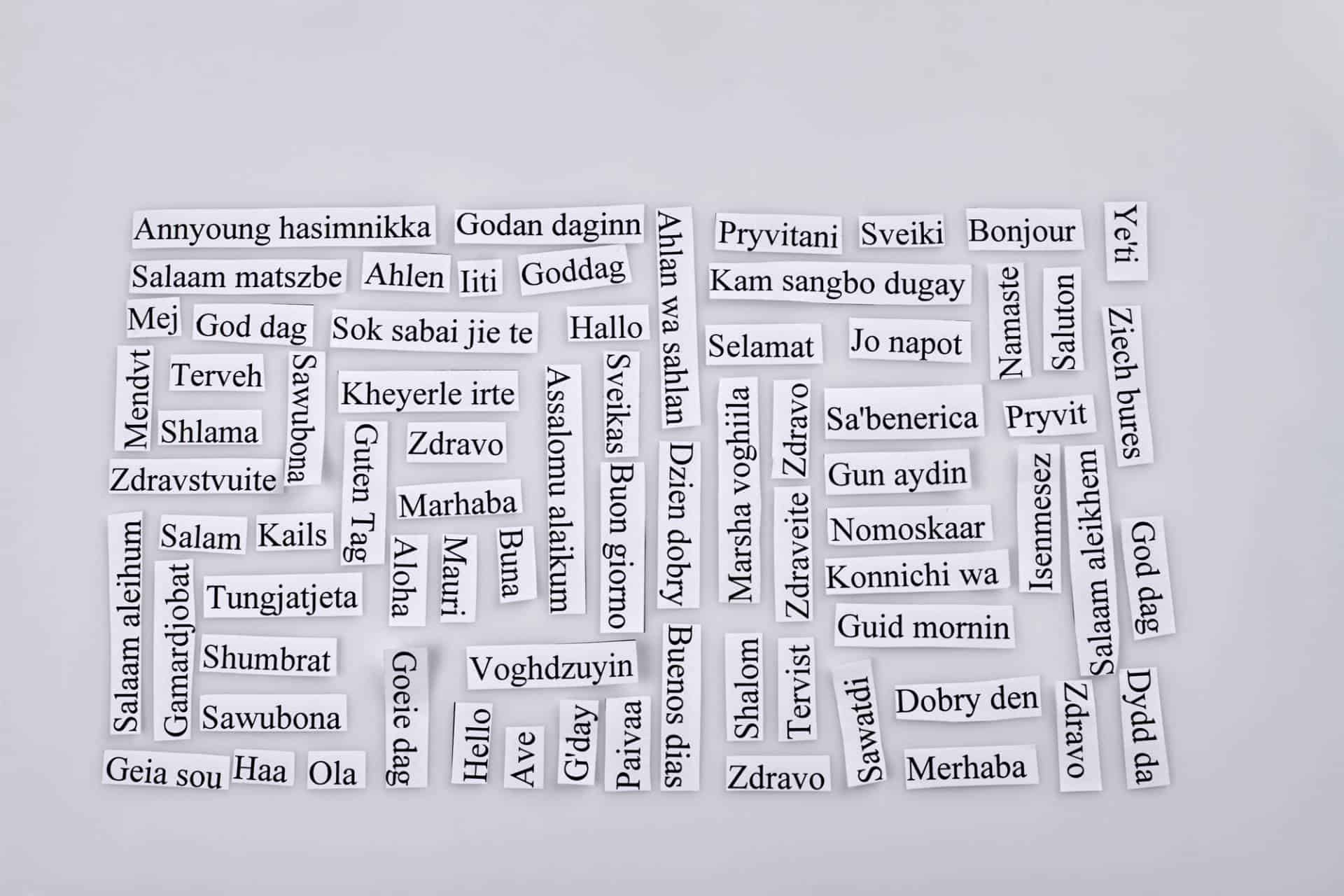
Above all else, do behave and try to make your mother proud. Whether you realize it or not, you are an ambassador for your country. As the Aussies say, don’t "act like a mongrel, maggot, or a bushpig" in another country. Please try to use common courtesies abroad and who knows...you might make a new friend.
Below is a good place to start, but for more info on words in foreign languages simply go to: translate.google.com
| English | French | German | Spanish | Italian | Greek | Portuguese |
| Hello | Salut | Hallo | Hola | Salve or Ciao | Yasas | Ola |
| Thank You | Merci | Danke | Gracias | Gratzie | Efcharistó | Obrigado/-a |
| Good Morning/Day | Bonjour | Guten Morgen | Buenos Dias | Buongiorno | Kalimera | Bom Dia |
| Good Afternoon | Bonjour | Guten Tag | Buenas Tardes | Buon pomeriggio | Kaló apógevma | Boa Tarde |
| Good evening | Bonsoir | Guten Abend | Buenas Noches | Buonasera | Kalispera | Boa Noite |
| How are you? | Comment ce va? | Wie geht es Ihnen? | Como esta? | Come sta/stai? | Pós eísai | Como esta? |
| I’m fine | Ca va bien | Mir geht es gut | Estoy bien | Sto bene | Eímai kalá | Estou bem |
| Excuse me | Excusez-Moi | Entschuldigen Sie Bitte | Perdone | Scusi | Sygnomi | Desculpe |
| I’m sorry | Desole | Verzeihung | Lo Siento | Sono spiacente | Sygnomi | Desculpe/Perdao |
| Please | Sil Vous Plait | Bitte | Por Favor | Per Favore | Parakalo | Por favor/Se Faz Favor |
| Thank you | Merci | Danke | Gracias | Grazie | Effaristo | Obrigado |
| Goodbye | Au Revoir | Auf Weidersehen | Adios | Arrivederci/Ciao | Andio | Adeus |
| Yes | Oui | Ja | Si | Si | Ne | Sim |
| No | Non | Nein | No | No | Okhi | Nao |
| How much? | Combien? | Wie Viel? | Cuanto Vale? | Quanto Costa? | Poso Kani? | Quanto custa? |
| Where is? | Ou Est? | Wo ist? | Donde Esta? | Dov’e? | Pou eínai? | Onde e? |
| The toilet | Les toilettes | Die toiletten | La toileta | Il bagno | I toualéta | O banho |
| Toilet Paper | Papier igienique | Toiletten papier | Papel higienico | Carta igienica | Chartí ygeías | Papel higienico |
| The bill | L’addition | Die rechnung | La cuenta | Il conto | Ton élencho | A conta |
| The Post Office | La Poste | Die Post | El Correos | La Posta | To tachydromeío | Os Correios |
| The Police | La Police | Die Polizei | La Policia | La Polizia | I Astynomía | Policia |
| The Bank | La Banque | Die Bank | El Banco | La Banca | I trápeza | O Banco |
| The Doctor | Un Medecin | Der Arzt | Un Doctor | Un Dottore | O Giatrós | Um Medico |
| The Hospital | L’Hopital | Das Krankenhaus | El Hospital | L’ospedale | To Nosokomeío | Hospital |
| Telephone | Telephone | Das Telefon | El telefono | Telefono | Tiléfono | Telefone |
| Open | Ouvert | Geoffnet | Abierto | Aperto | Anoixe | Aberto |
| Closed | Ferme | Geschlossen | Cerrado | Chiuso | Kleistó | Fechado |
| Water | Eau | Wasser | Agua | Acqua | Neró | Agua |
Some language pitfalls to be wary of include:
- In French, instead of saying “merci boucoup” (pronounced boh-koo), accidentally saying “merci beau cul” (pronounced boh-Q). The first means “thank you very much”, whereas the second means “thank you sexy ass”.
- In Italy, by ordering a “latte,” you will simply receive a hot milk. Rather, specify a “cafe latte” instead.
- When ordering or asking for food without any additives or preservatives in Spain or Italy avoid the word ‘preservativo,’ and in France ‘preservatifs’. Both words actually mean condoms.
- If an Italian should suddently come up to you and solicit you for some “fuoco,” he is not being cheeky, fresh, or asking you for a shag (unfortunately for some I realize). He is simply asking you for your lighter.
- Andrea is actually a guy’s name in Italian and considered masculine.










